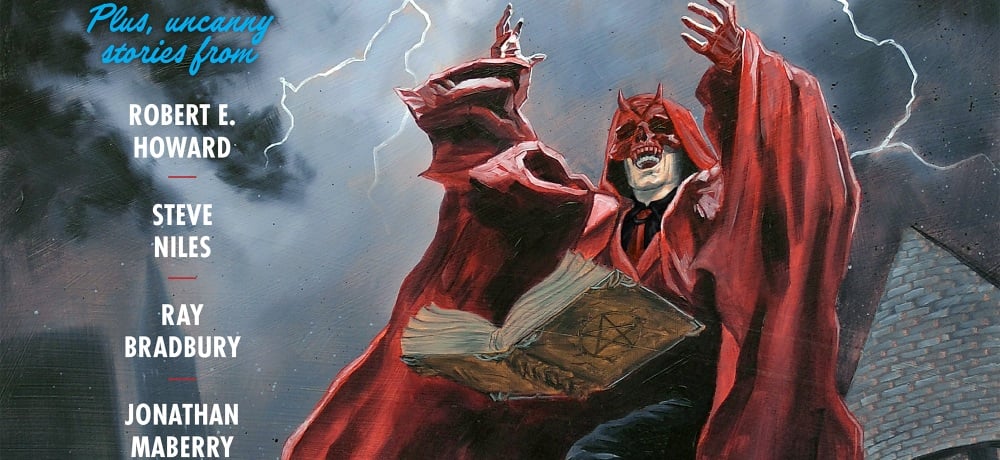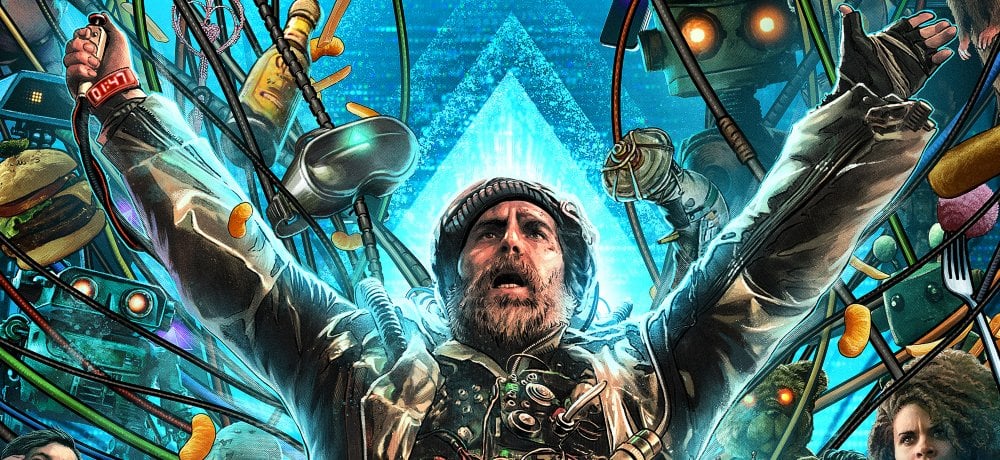





This past Friday, the latest genre project from Jim Mickle, In the Shadow of the Moon, landed on Netflix, and a week prior, the sci-fi thriller celebrated its world premiere at the 2019 Fantastic Fest. Starring Boyd Holbrook, Cleopatra Coleman, Bokeem Woodbine, and Michael C. Hall, Shadow centers on a serial killer who appears every nine years to claim their victims, but their crimes don’t seem to logistically add up for police officer Thomas Lockhart (Holbrook), who finds himself in the middle of these perplexing cyclical murders.
While in Austin, Daily Dead had the opportunity to speak with Mickle, and he talked about the journey of getting In the Shadow of the Moon made, the challenges of working with the film’s complex narrative, the ambitious shooting schedule over the course of 40 days, and more.
In the Shadow of the Moon is currently streaming on Netflix.
Great to speak with you again, Jim. I don't think it's doing a disservice to anything you've worked on before to say that this is probably the most ambitious film you've ever made. Can you talk about this journey, because you mentioned at the Q&A last night that this was something you guys were working on for a while?
Jim Mickle: In, 2013 they [Gregory Weidman and Geoffrey Tock] started the script. I read it the first time in 2015, and it was an early version of the script. So, it's definitely changed a lot and evolved a lot as we went along. I was doing Hap and Leonard at the time, so we would work on it for a couple months, intensively going through drafts, try this, try that, move some puzzle pieces around, and then the show would start up again and then I'd go dive headlong into that. Then, we'd come back again and figure out, "All right, where did we leave this?"
It was a really good experience because you can come back into it cold and be like, "Oh no, we actually missed this and missed that." So, there was a lot of moving things around, which was good because we had time to make sure it all worked. And that’s why it all does track, because we've done the late-night conversation about the butterfly effect, and everything. So, it was a cool collaborative experience for me.
Well, there are definitely so many little components that have to line up perfectly for this story. How exhaustive was that process from a creative standpoint?
Jim Mickle: Very. It was exhaustive and both of those guys are thorough like that. Fortunately, there are two of them, so they can bash things out and argue stuff together and sometimes I would float a problem to them and they would come back and have a solution to it. So yes, there was a ton of that. And then, we actually did have a packet that we put together before this, because you have a film crew who is coming in cold, like the prop master, the costume designer, and art department, who have to make sense of the puzzle themselves. Stuff like that just it makes it really complicated, because every little thing that would normally just be a normal part of a filmmaking process all of a sudden has to have all these different steps to it.
So, we had a packet that we went into all the different timelines that could spin off from these moments in the script, and how these characters would react differently in each of the scenarios. I just thought of it like a Rubik's cube of performances for each actor, and I thought it gave us some interesting possibilities for each actor, and it was those possibilities that really got me excited to want to tell this story.
From your perspective, was there something in particular about the idea of time travel that really fit the narrative of this story well? And do you think that there's something in particular about where we are right now where we're just kind of like, “Boy, if we could go back in time, we could do this or that to change how things will end up”?
Jim Mickle: I do. And to be honest, I enjoy it in elements of movies, but I'm not the kind of film fan that is super invested in time travel movies, where I’ll sit down and watch something and recognize that it’s following a certain model of time travel we’ve seen in this movie or that movie. But it is interesting that there are quite a few films that are delving into the concept, especially coming to this festival. It’s very interesting to me, and it’s very telling, undoubtedly.
But also, when I made Stake Land, it was at a time where every movie that came out was a vampire movie. The movie before that, Mulberry St., came out at exactly the same time that everybody was making zombie films. So, I do think there are these collective unconscious waves that go throughout the industry. And yes, I do think there probably is something about the world that we live in, especially in America, of wanting to go back and do things differently, but also wanting to fast forward through certain things, too.
I'm curious because again, with In the Shadow of the Moon, you're dealing with different timeframes, so the production design changes, the cars have to change, the wardrobe—everything. How did you guys manage all of that?
Jim Mickle: Yeah, it was hard. This film was one the hardest things I have ever done. The first season of Hap and Leonard was probably a little bit harder, but this is the next hardest. And also, we shot in Toronto in summertime, where the night times are short, so out of the 40 shooting days, probably 35 of them were at night, and we were shooting at a time where you only get 10 hours a night at a time.
So, you have to get up and run and get everything set for the first shot, and then just sit and wait and wait and wait. As soon as the sun touches down and it's dark enough, you can start rolling and then you have to be shooting as much as possible. And in the last couple shots you're doing every day, you're blocking out the sun that's starting to come up. So, every day was just this amazing race to do that. We also learned a lot of lessons about locations, because every day was a new location. We never came back anywhere, so we had like 55 different locations in 40 days. It was very, very, very, very, very difficult, and it took a lot out of the actors. We beat the shit out of Boyd and there were days where we just had to pump them full of vitamins to keep them going. It was really hard for everyone, but we all pulled together.
---------
Visit our online hub to catch up on all of our live Fantastic Fest 2019 coverage, including more reviews and interviews from the festival!